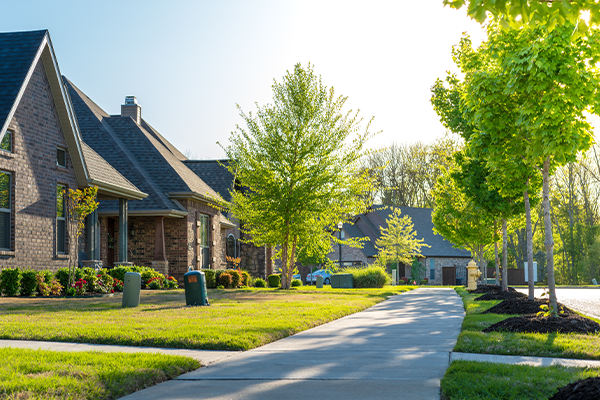Airbnb Laws in Arkansas: Find Updated AR Short-Term Rental Laws
Understanding Arkansas’s Airbnb laws and short-term rental regulations is essential for any host or vacation rental owner operating in the state. Local ordinances vary across cities and regions, so staying compliant with regulations related to insurance requirements, registration, taxes, occupancy limits, and safety standards is key to a successful and legal hosting experience.
If you have questions about short-term rentals in Arkansas, contact Proper Insurance. Our agents are experts in the vacation rental industry. Call 877-597-1322 today.

Fayetteville, Arkansas Airbnb Rules
New Fayetteville Airbnb Regulations Implemented, Includes Insurance Requirement
In May 2021, the City of Fayetteville, Arkansas, implemented comprehensive short-term rental (STR) regulations to address the growing use of properties for platforms like Airbnb and Vrbo. These laws include clear definitions of STR types, zoning restrictions, business licensing requirements, and mandatory short-term rental insurance.
- Definition of STRs in Fayetteville: Short-term rentals are divided into two types of categories: Type 1 STR is a dwelling unit used as the owner’s (or occupant’s) primary residence, where the owner/occupant resides in the property at least 9 months of the year, and occasionally leases it as a short‑term rental; Type 2 is dwelling unit that is not occupied by a permanent resident, but instead is operated full‑time as a short‑term rental (i.e., non‑owner‑occupied).
- Licensing: All STRs must obtain a business license for operating as a short‑term rental. For Type 2 STRs located in residential zoning districts, a conditional use permit (CUP) is required prior to issuance of a business license, and the City limits the number of business licenses to 475 city‑wide. Once the cap is reached, new applicants are placed on a waitlist.
- Zoning: STRs are permitted in any structure established as a permanent residential dwelling, including accessory dwelling units. Recreational vehicles, trailers, or structures not classified as permanent dwellings are not allowed. In specified residential zoning districts (e.g., R‑A; RSF-0.5, RSF‑1, RSF‑2, etc.), a CUP is required for Type 2 STRs.
- Taxes & Fees: STRs must comply with the city’s 2% Hotel/Motel/Restaurant (HMR) tax registration and remittance requirements using an Accounting Data Sheet.
- Insurance: The owner of the dwelling unit or operator of the short-term rental provides proof of a valid and current insurance policy, which fully covers each unit when operated as a short-term rental unit.
- While the City of Arkansas is trying to do the correct thing and requiring vacation rental hosts to obtain insurance, it’s important to note that a standard Homeowner’s policy WILL NOT provide adequate coverage when operating a short-term rental business. This is due to standard Homeowner’s policies only providing personal liability, meant to cover ‘personal acts of negligence’. To have adequate insurance for your Airbnb rental operations, you will need to upgrade to a short-term rental policy like the one offered by the nation’s leading insurance provider.
- Enforcement & Penalties: The city may issue violations, deny licenses, or suspend municipal services such as water and trash collection if a short-term rental operates without proper documentation. Repeated violations or non-compliance with zoning and licensing requirements can lead to additional penalties, including daily fines and permit revocation.
- More Information: To learn more about short-term rental regulations in Fayetteville, visit the city’s official Short-Term Rentals page.
Receive Regulations Updates
Join thousands of short-term rental professionals staying informed on emerging trends, real rental risks, and regulatory changes.
It’s once a month and only takes minutes to read.
"*" indicates required fields
Hot Springs, Arkansas, Short-Term Rental Laws
Airbnb Laws in Hot Springs, AR
Hot Springs, Arkansas, boasts natural beauty, thermal springs, and vacation spas galore. To balance tourism with neighbor satisfaction, Hot Springs regulates short-term rentals under City Code Title 16, Ch. 10, and a series of Board-adopted ordinances. Beginning in 2021, the City created a licensing program to balance tourism with neighborhood quality of life and safety; later amendments with Ord. No. 6435 added a residential-zone license cap, refined appeals, inspections, and condo/HPR rules.
- Licensing & Registration: All STR operators must maintain a Short-Term Residential Rental Business License and agree to collect and remit applicable lodging taxes on all gross receipts. Annual STR license fees in Hot Springs are based on maximum overnight occupancy and calculated at $50 per person, per year with a $200 minimum. Licenses are valid for one year and are non-transferable (except for certain family transfers), with fees due on January 1st of each year. Renewal reminders and forms are available on the City’s STR Business License Requirements & Details page.
- Applications are submitted through the STR Business License Portal and must include:
- Complete the Short-Term Rental Home Inspection Form by scheduling a Hot Springs STR inspection. Applications for vacation rental home licenses in Hot Springs should include: name and contact details of a local contact person available 24/7; a floor plan showing each room, square footage, and required off-street parking spaces; a valid Certificate of Occupancy to verify compliance with building and fire codes; all required annual fees at submission; proof of Special Use Permit if located in a residential zoning district (RR, RS, RN-1 through RN-6); and a monthly written log of required smoke detectors that shows these items as functioning. Late fees apply as follows: March 1: +10% penalty; April 1: +30% penalty; May 1: License marked lapsed.
- Zoning: Hot Springs allows STRs in both residential and non-residential zoning districts, but residential zones (RR, RS, RN-1 through RN-6) are subject to the City’s residential license cap of 400. Non-residential zones (C-TR, CN, CMU, CG, CBD, IL, IH, IMU) remain open for new STR licenses. If more than 400 licenses exist as of January 1, those above the cap may continue renewing, but no new residential licenses will be issued until the total falls below 400.
- Occupancy Limits & Stay Length: A STR is defined as the rental of a legally permitted dwelling for fewer than 30 consecutive days. Maximum overnight occupancy is determined during inspection and is printed on the STR license. However, occupancy for STRs cannot exceed two guests per bedroom, plus two.
- Insurance: The City does not currently require proof of STR-specific insurance, but owners are strongly advised to carry commercial-grade STR insurance coverage that includes property, liability, and business income protection.
- Advertising: The license number must be prominently displayed inside the STR unit (in a visible location), on every online listing, advertisement, sign, or printed promotional material, and a copy must also be provided to each responsible tenant.
- Noise & Quiet Hours: STRs must comply with the City’s Noise Control Ordinance, with quiet hours from 10 p.m. to 7 a.m. Amplified music, loud gatherings, or unruly behavior are prohibited.
- Parking & Property Care: STRs must provide adequate on-site parking as detailed in their approved application and maintain the property in a clean, safe, and sanitary condition. Failure to manage trash, yard maintenance, or guest behavior can result in citations or license suspension.
- Point of Contact Person: A local contact person must be available 24 hours a day to respond to complaints within 60 minutes and correct violations (including noise, parking, or occupancy issues). The contact’s name and phone number must be included in all guest materials and on file with the city.
- Taxes: STR operators must collect and remit all applicable taxes, including the 3% City Short-Term Rental Tax. Registration and monthly filings are completed through GovOS. Tax payments are due no later than the 20th of the month, even if there was no rental activity.
- Enforcement & Penalties: Violations of the City’s short-term rental regulations may result in fines of $1,000 for the first offense, $2,000 for the second, and $4,000 for each subsequent violation. If a prohibited action continues over multiple days, an additional $500 per day penalty may be imposed until the issue is resolved. The City of Hot Springs may also disconnect municipal water service for serious or repeated building and development code violations. Continuing to operate without a valid license can lead to revocation and two-year ineligibility for reapplication.
- More Information: Find more information about Hot Springs, AR, Airbnb registration, and vacation rental laws on the Hot Springs STR Business License Requirements & Details page.
Quote Your Short-Term Rental Today
Interested in a policy that’ll protect you and your business from liability and damage claims? Proper Insurance leads the nation in short-term rental insurance. Backed by Lloyd’s of London and exclusive endorsements from short-term rental leaders such as Vrbo, Proper Insurance is built on world-class insurance coverage that meets and exceeds both city and lender requirements.
Please note: The information provided is intended as a guide and may not be comprehensive or current. Regulations may change and could vary by area or situation. Always consult local authorities or a legal professional to ensure you have the most accurate information for your short-term rental property.
Get the Updates You Need
Stay informed on regulatory changes, STR trends, and real short-term rental risks with our newsletter.
It’s once a month and only takes minutes to read.
"*" indicates required fields



